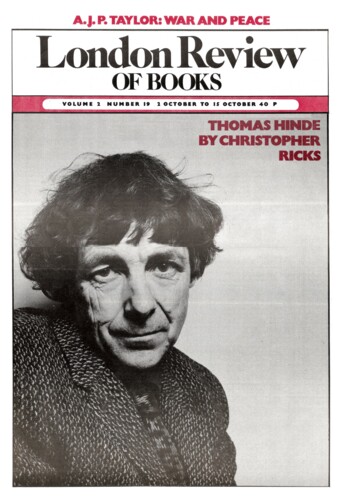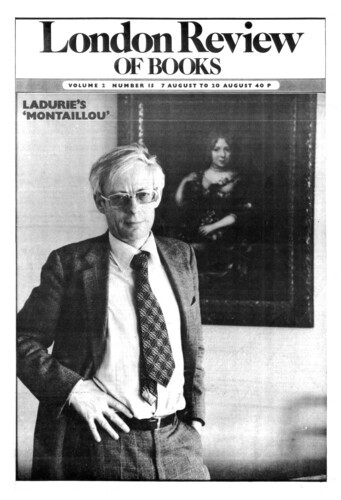Out of Germany
E.S. Shaffer, 2 October 1980
Rosemary Ashton traces the impact of some German writers, especially Goethe, on the British periodicals and on four writers, Coleridge, Carlyle, Eliot and Lewes; Geoffrey Hartman ranges widely through 19th and 20th-century criticism in pursuit of the idea of philosophic criticism, as it derived from Friedrich Schlegel and his German contemporaries. For both authors to a remarkable degree the central figure is Carlyle. For Mrs Ashton, Carlyle is the supreme publicist, not of ‘the German idea’, but of the British image of German literature as put about by the periodicals: for this book is largely about the art of the publicist, and not about ideas, German or otherwise. For Hartman, Carlyle is a vivid and living presence in modern criticism, through his influence on Emerson, who from a standpoint current in the United States is recognised as the seminal voice in American philosophic criticism. It is with such living ideas that Hartman, like Arnold, is concerned, and he succeeds in tracing its pulse down to our own time, and in suggesting stimulating solutions to contemporary critical dilemmas.


